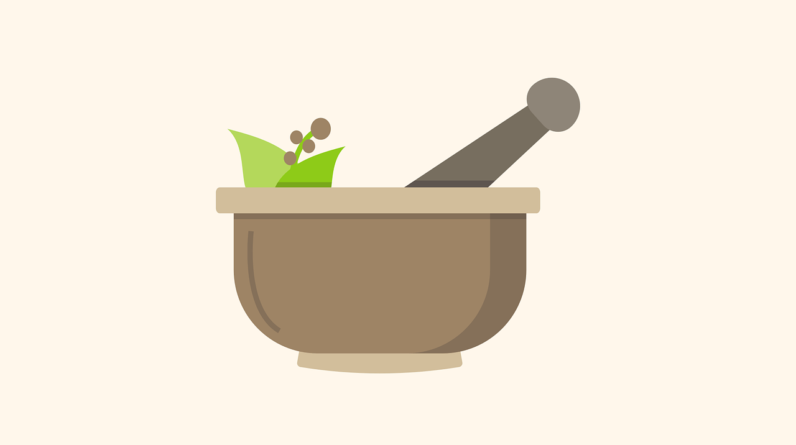
How Can Ayurvedic Wellness Improve Our Overall Health?
Ayurveda, which translates to “the science of life,” is a holistic health system that originated in India over 3,000 years ago. This ancient practice focuses on achieving balance in the body, mind, and spirit to promote overall well-being and longevity. By incorporating Ayurvedic principles into our daily lives, we can optimize our health and prevent disease.
Understanding the Three Doshas
In Ayurveda, it is believed that each individual has a unique combination of three doshas, or energy forces, known as Vata, Pitta, and Kapha. These doshas govern different aspects of our physical and mental well-being. By understanding our dominant dosha and maintaining its balance, we can achieve optimal health.
The Importance of Ayurvedic Diet and Nutrition
According to Ayurveda, food is not just fuel for the body; it is also medicine. A well-balanced Ayurvedic diet is essential for nourishing our body and maintaining dosha balance. Foods are classified based on their tastes (sweet, sour, salty, pungent, bitter, astringent) and their effects on the doshas. By eating according to our dominant dosha and the season, we can support our overall health and well-being.

This image is property of pixabay.com.
The Power of Herbal Remedies in Ayurveda
Ayurveda utilizes a wide range of herbs and plant-based medicines to treat various health conditions and promote wellness. These natural remedies are known for their potency and effectiveness in restoring balance to the body. From turmeric and ashwagandha to triphala and tulsi, Ayurvedic herbs offer a gentle and holistic approach to healing.
Incorporating Ayurvedic Herbs Into Our Daily Routine
Ayurvedic herbs can be consumed in various forms, including powders, capsules, teas, and oils. By incorporating these herbs into our daily routine, we can harness their healing properties and support our overall health. For example, ashwagandha is known for its stress-relieving and immune-boosting benefits, while turmeric is prized for its anti-inflammatory and antioxidant properties.
Creating Ayurvedic Herbal Formulas
In Ayurveda, herbs are often combined to create synergistic formulas that address specific health concerns. These herbal blends are personalized based on an individual’s dosha imbalance and health needs. By working with an Ayurvedic practitioner or herbalist, we can create custom herbal formulas tailored to our unique constitution and wellness goals.
The Role of Yoga and Meditation in Ayurvedic Wellness
Yoga and meditation are integral components of Ayurvedic wellness, helping to harmonize the body, mind, and spirit. These ancient practices promote flexibility, strength, mental clarity, and emotional balance. By incorporating yoga asanas (postures) and pranayama (breathing techniques) into our daily routine, we can enhance our overall well-being.
Practicing Dosha-Specific Yoga
In Ayurveda, yoga is customized based on an individual’s dosha imbalance. Vata-dominant individuals may benefit from grounding and calming yoga practices, while Pitta-dominant individuals may benefit from cooling and soothing yoga poses. Kapha-dominant individuals may benefit from invigorating and stimulating yoga sequences. By practicing dosha-specific yoga, we can bring balance and harmony to our mind-body constitution.
Cultivating Mindfulness Through Meditation
Meditation is a powerful tool for calming the mind, reducing stress, and enhancing mental clarity. In Ayurveda, meditation is tailored to an individual’s dosha imbalance and mental state. Vata individuals may benefit from guided visualization and mantra meditation, while Pitta individuals may benefit from mindfulness meditation and breath awareness. Kapha individuals may benefit from dynamic and energizing meditation practices. By cultivating mindfulness through meditation, we can cultivate inner peace and emotional resilience.
Ayurvedic Body Therapies for Detoxification and Rejuvenation
Ayurveda offers a variety of body therapies known as Panchakarma to detoxify the body, rejuvenate the tissues, and restore balance. These therapies include oil massage (Abhyanga), herbal steam therapy (Swedana), and nasal cleansing (Nasya). By undergoing Panchakarma treatments, we can eliminate toxins, reduce inflammation, and revitalize our body, mind, and spirit.
The Benefits of Abhyanga (Ayurvedic Oil Massage)
Abhyanga is a traditional Ayurvedic oil massage that involves applying warm herbal oils to the body in a rhythmic and soothing manner. This therapeutic practice helps to nourish the skin, relax the muscles, improve circulation, and calm the nervous system. Regular Abhyanga can promote relaxation, reduce stress, enhance detoxification, and strengthen immunity. By incorporating Abhyanga into our daily routine, we can support our overall health and well-being.
Enhancing Detoxification With Swedana (Herbal Steam Therapy)
Swedana is a form of Ayurvedic therapy that involves sitting in a steam box filled with herbal steam. This detoxifying practice helps to open the pores, eliminate toxins, improve circulation, and reduce stiffness in the body. Swedana is beneficial for reducing inflammation, promoting relaxation, enhancing detoxification, and boosting the immune system. By incorporating Swedana into our wellness routine, we can support our body’s natural detoxification processes and improve overall health.
Nasal Cleansing for Respiratory Health (Nasya)
Nasya is an Ayurvedic practice that involves instilling herbal oils or medicated liquids into the nostrils to cleanse the sinuses and improve respiratory health. This therapy helps to clear congestion, reduce inflammation, lubricate the nasal passages, and balance the doshas. Nasya is beneficial for treating sinus issues, allergies, headaches, and respiratory conditions. By incorporating Nasya into our self-care routine, we can promote respiratory health, alleviate symptoms, and support overall wellness.
Harnessing the Power of Ayurvedic Rituals and Routines
Ayurveda emphasizes the importance of daily rituals and routines to promote balance, harmony, and wellbeing. By incorporating Ayurvedic practices into our lifestyle, we can align ourselves with the rhythms of nature and optimize our health on all levels.
Establishing a Daily Routine (Dinacharya)
Dinacharya, or daily routine, is a fundamental practice in Ayurveda that involves following a set of rituals and activities to support health and well-being. These rituals may include waking up early, practicing yoga and meditation, scraping the tongue, oil pulling, dry brushing the skin, and eating nourishing meals at regular intervals. By establishing a daily routine aligned with our dosha and the natural cycles of the day, we can promote balance, vitality, and longevity.
Seasonal Cleansing and Rejuvenation (Ritucharya)
Ritucharya, or seasonal routine, is another important aspect of Ayurveda that involves adapting our lifestyle and diet according to the changing seasons. Each season has its unique qualities that can influence our doshas and overall health. By following Ritucharya guidelines, we can support our body’s natural detoxification and rejuvenation processes, prevent seasonal imbalances, and stay healthy throughout the year.

This image is property of pixabay.com.
Conclusion
In conclusion, Ayurvedic wellness offers a comprehensive and holistic approach to health and longevity. By incorporating Ayurvedic principles, practices, and therapies into our daily lives, we can achieve balance, harmony, and vitality on all levels. From understanding our dosha constitution to adopting an Ayurvedic diet, herbal remedies, yoga, meditation, body therapies, and daily rituals, we can unlock the secrets of Ayurveda and optimize our overall health and well-being. Embrace the wisdom of Ayurveda and embark on a transformative journey to holistic wellness.






